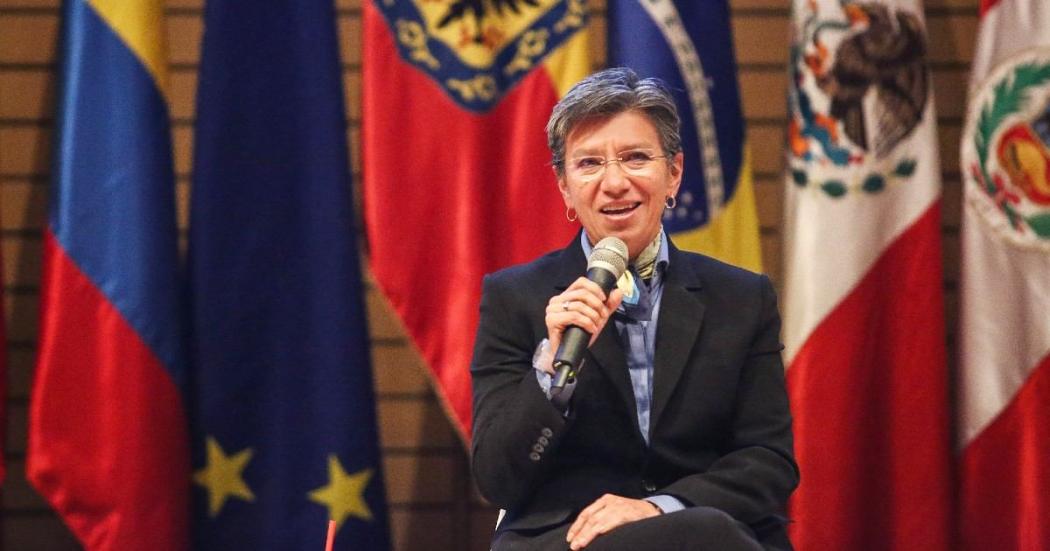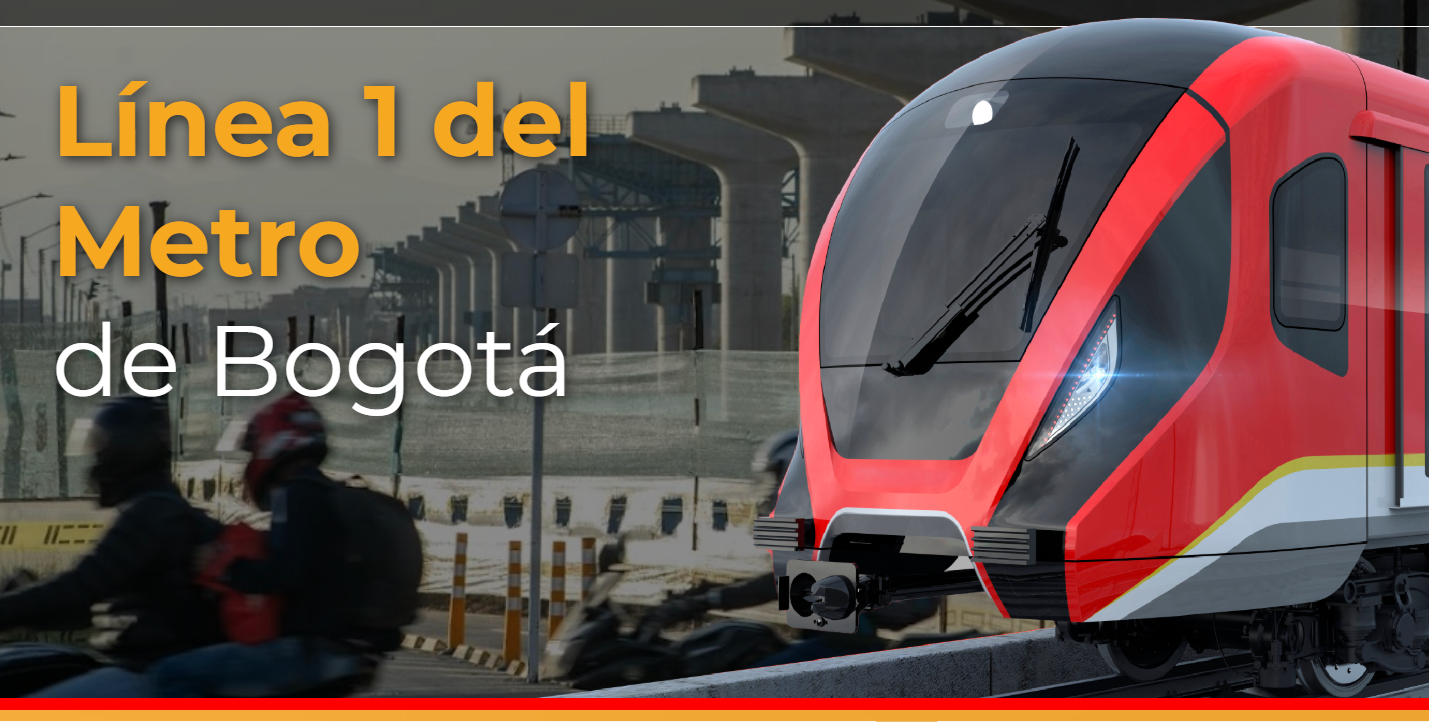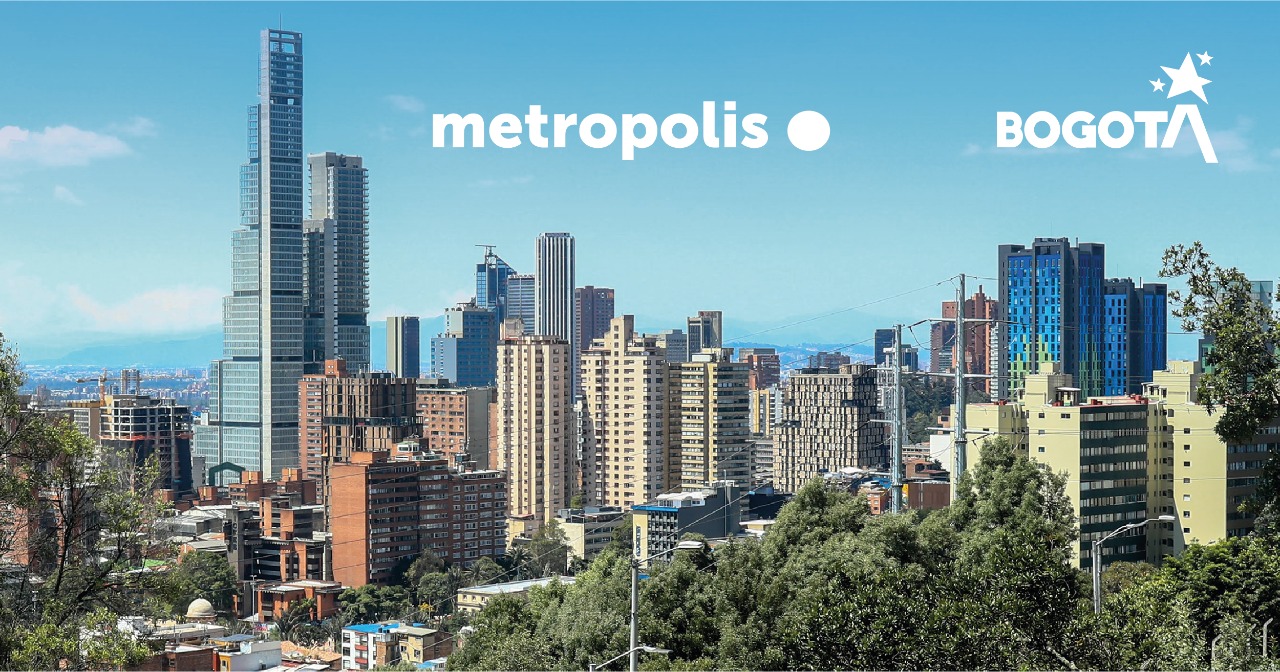The Mayor of Bogotá, Claudia López, was appointed president of Metropolis, the global network that brings together large cities and metropolitan spaces from all continents. This was announced on Thursday at an executive meeting held in the city.
Mayor López showed that the interest of her presidency in Metropolis during the period 2022-2023 is to relaunch the international debate on metropolitan solutions to great current challenges.
Below, a tweet in which the Mayor of Bogotá, Claudia López, expressed gratitude for her appointment as president of Metropolis and affirmed that this is a historic opportunity to build a future of care for people, the environment, inclusion, and sustainability:
Con gratitud recibo la presidencia de @metropolis_org. Es una oportunidad histórica para construir un futuro de cuidado de las personas y del medio ambiente, inclusión y sostenibilidad. Gracias por la confianza depositada en Bogotá, trabajaremos en equipo por nuestras ciudades. https://t.co/eOFjr11vnvpic.twitter.com/kQCNirVJYU
— Claudia López Hernández (@ClaudiaLopez) July 14, 2022
One of the main details in the Mayor's intervention was the consolidation of Bogotá-Region and the main mobility projects that are being developed as part of the scheme, among which are the Metro lines, the Regiotrams, and the road corridors.
This is the first time that a city in Latin America has held the presidency of the network and, in addition, Mayor López will be the first woman to hold this position since the creation of Metropolis, in 1984.
Previously the title had been occupied by Michel Giraud on behalf of the region of Île-de-France (France); Joan Clos of Barcelona (Spain); Denis Coderre of Montréal (Canada); and Michael Müller from Berlin (Germany), among others.
Metropolis Assembly
This network of cities around the world brings together large cities and metropolitan spaces from all continents and focuses its work on global leadership and the defense of solid governance.
Its programs provide metropolitan communities with tools and knowledge to make the best decisions taking into account an intersectional perspective on four critical metropolitan challenges: urban growth, resilience, digital disruption, and public legitimacy.
On July 13 and 14, Bogotá hosted the Metropolis board of directors, which ended in a meeting in which Guo Yonghang, Mayor of Guangzhou (China), finished his presidential term in the network, and Claudia López, Mayor of Bogotá, assumed the position of president of the network on behalf of the Colombian capital.
In the network Assembly, a conversation was held in which the Mayor of Bogotá, Claudia López; Emilia Saiz, Secretary General of the United Cities and Local Governments (UCLG); Jordi Vaquer, Secretary General of Metropolis; Ernest Maragal, Vice President of the Metropolitan Area of Barcelona; and Marta Suplicy, Secretary of International Relations of Sao Paulo.
The central theme of the discussion was the Metropolitan Region as a process in which the Colombian capital and nearby municipalities advance, but also the experiences that other cities in the world have had in this area.
The Avantia project
Mobility was also on center stage in the announcement of the Avantia project, a triangular cooperation between Bogotá, Madrid, and the General Secretariat of Metropolis, financed by funds from the European Union, which began its execution precisely at the executive meeting.
The official name of the project is "Moving Towards Recovery: Bogotá's transport system as a catalyst for environmental sustainability and gender equality in the post-COVID-19 era", from which the acronym AVANTIA (Advancing towards Transport for Equality and the Environment) is derived.
The Avantia project aims not only to improve public capacity to implement sustainable mobility alternatives, but also to strengthen the ability of Bogotá-Region to measure air quality and increase female participation in the public transport sector, thus promoting economic reactivation.
The Board of Directors also devoted time to a call to action in the face of the magnitude of the crises that are currently occurring. During the speech, the leaders discussed emergencies related to climate, food, the economy, health, forced migration, and the work of local governments as the main line of defense.
In the following tweet, Mayor Claudia López highlights the importance of launching the Avantia project, which promotes sustainable mobility in the city:
Nos hace felices que en el congreso de @metropolis_org se ponga en marcha el proyecto Avantia para promover esfuerzos en movilidad sostenible, ambiente y enfoque de género.Gracias por creer en nuestro plan de Movilidad Sostenible con metro, cables, regiotrams y corredores verdes! pic.twitter.com/ta2ilYhUoJ
— Claudia López Hernández (@ClaudiaLopez) July 14, 2022
Pan American Metropolitan Report
In the Huitaca Auditorium of the Mayor's Office of Bogotá, Metropolis’ policy leader, Lia Brum, presented the Pan American Metropolitan Report to promote an open debate on the current and future state of metropolitan spaces in the Americas.
The Pan American Metropolitan Report analyzes 38 metropolitan indicators in 23 metropolitan areas of South America, Central America, the Caribbean, and North America. This report is based on the analysis of metropolitan indicators related to the context and governance, economic development, social cohesion, environmental sustainability, and quality of life, on which it provides context information, data analysis, and structuring of perspectives for each region.
Metropolis published two (2) reports with the same attributes for Asia and Africa in 2021. Each report provides a series of conclusions that delineate the main challenges, as well as highlights alternative solutions and strengths that metropolitan regions can use to continue promoting development.
Closing of the Metropolis assembly
The day closed with a high-level discussion on metropolitan governance experience where the Mayor of Bogotá and President of Metropolis, Claudia López presented the objectives and organization of the Metropolitan Region, based on a strategic planning of seven pillars: territorial planning; food supply; mobility; environmental management; security, coexistence and justice; economic development; and public services.
During the discussion 'The importance of metropolitan debate and cooperation between the different levels of governance', Mayor López gave a detailed account of how the process is progressing so that Bogotá and Cundinamarca become a Metropolitan Region.
Below, a tweet in which Mayor López thanked Metropolis for the opportunity to work in coordination and with the conviction that city networks are a system of cooperation:
Gracias @metropolis_org por esta gran oportunidad de trabajar juntos! Tenemos muchos retos y la convicción profunda de que las redes de ciudades son escenario de inspiración y trabajo colectivo, porque el mundo del siglo XXI nos obliga a no competir y a cooperar. pic.twitter.com/mxNTxXVHnD
— Claudia López Hernández (@ClaudiaLopez) July 14, 2022
"To form the Metropolitan Region, we had to go through a constitutional reform. And in the middle of the pandemic, we processed that reform, we made advances with it in 2020, then we processed an organic law. Now we have that law, we are in the process through which our municipal councils or the Assembly of Cundinamarca, have to, one by one, decide if they approve the linking of their District, of their municipality, or the department, so that the Metropolitan Region comes alive," she explained to the international attendees.
Next, relive the transmission of the high-level discussion on metropolitan governance experience:






